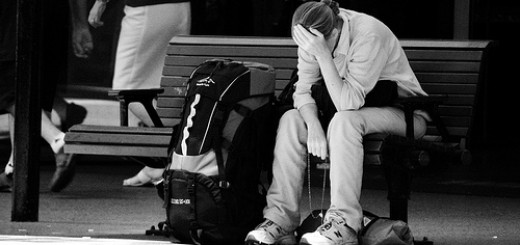Dos and don’ts of reverse culture shock
Culture shock is expected when moving to a new country, with different norms taking a while to get used to. But what happens when you’ve been away from home for a while? ‘Reverse culture shock’ is as common as regular culture shock and can be just as hard – if not harder – to deal with. It’s the feeling people get when they return home and how they feel different than before they left. So how should you react to this phenomenon and re-adapt to your home culture after having had a life-changing experience abroad?

What to expect when going home
Not everyone will understand – or listen – to all your stories. Honestly, not everyone cares as much as you about the struggles of opening a new bank account or how you could have gotten that same meal for a fraction of the price.
On top of that, you’ll have to go back to your country’s habits, whether it’s eating different foods or meals at different times, or greeting people in a certain way. It might also feel like your time abroad was just a dream, or you might not want to let go of some cultural habits you picked up over there.
It is completely normal! Going abroad makes you grow (or at least change) in different ways, and if you feel like there are certain things you want to bring back with you, why not do it: a mixture of culture is possible.
How to battle reverse culture shock
Keep in touch with the connections you made abroad, but make sure you keep moving forward with your life. You might have made lifelong friends over there who have become important and part of your everyday life, so staying in contact with them can help you cope with being back.
You can also try meeting expats living in your city. Who knows, there might even be people from your host country living there as well. Try to see if they have meetings or activities that you could join. This can help with reverse culture shock, especially during the first few months back. There might also be some organizations you can join that would help you meet other foreigners, even if you’re not one anymore.
You should also start to rebuild the relationships you made before moving. Even if you were still in contact with some friends while you were away, long distance relationships are not the same. During your time abroad, people’s lives kept going on, so connect with them and find out what’s been happening.
Most importantly, find a balance between sharing your experience and listening to theirs. Talk about it and teach the culture to your friends and family. They might enjoy hearing about the cultural differences between countries, . You can try cooking traditional food from your host country, because who doesn’t want to try new food?
What to avoid
Try to avoid certain things when you go back home, unless you’re looking to annoy people.
Of course you can share your experiences, but try not to tell ALL your stories to everyone. Constantly talking about your time abroad will not help you move on from your life there, and can just be downright annoying for your friends and family.
 Don’t get all snobby about certain things back home, that you thought were better in your host country. Try to avoid sentences starting or ending with “this was so much better” in whatever country.
Don’t get all snobby about certain things back home, that you thought were better in your host country. Try to avoid sentences starting or ending with “this was so much better” in whatever country.
Moping around is probably the worst thing you can do. Having too much free time will just make you feel lousy about being home or think about your time abroad, so keep busy! Get moving, rediscover your country and all of its perks.
All about readjusting
Just like adapting to a host country, readjusting and re-adapting to your country’s culture can take some getting used to. Everyone deals with this in their own way, and it might take some people longer than others.



